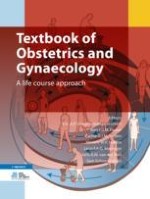Summary
Women’s reproductive health is a major determinant for pregnancy outcomes and their risk of various non-communicable diseases in later life. Besides the consequences for a woman’s own health, it also has important health consequences for her offspring. Adverse maternal exposures during pregnancy may adversely affect foetal development, leading to permanent developmental adaptations which predispose offspring to an increased risk of non-communicable diseases in adulthood. Using this life course approach to women’s health, we need to identify and create opportunities to improve women’s health through their life course and the health of future generations both at a population level as well as in patient care by using a multidisciplinary approach from early life onwards.
